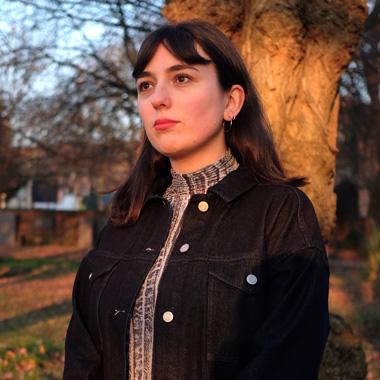Dr Nicola Guy
Staff details

Position
Lecturer in Arts Administration and Cultural Policy
Department
Institute for Creative and Cultural Entrepreneurship
n.guy (@gold.ac.uk)
Nicola’s research looks at exhibition-making and museum practices as a means of the production of space
Nicola Guy is researcher and curator and convenes the PGCert in Museums & Galleries Entrepreneurship as well as teaching on the MA in Arts Administration and Cultural Policy. In 2023 she completed her PhD at the University of Hull with the title "Art, Activism or Advertising? The role of exhibition-making in the production of reunified Berlin." Her research looks at exhibition-making and museum practices and how these create and contribute to collective identity in communities, with a focus on post-Socialist states. She has previously held positions at Nottingham Contemporary, Flat Time House, London and Archive, Berlin and taught at universities including The University of Nottingham and University of the Creative Arts. She has contributed widely to public programmes in museums and arts organisations and regularly writes on contemporary artists and exhibitions.
Academic qualifications
- PhD History, University of Hull (The Heritage Consortium) 2023
- Post Graduate Certificate, Heritage Research, University of Hull 2019
- MA Museum Cultures, Birkbeck, University of London 2016
- BA (Hons) Fine Art, Goldsmiths, University of London 2012
Research interests
My on-going research and writing practice intersects exhibition histories and spatial studies, combining theoretical underpinnings from both disciplines to consider how exhibitions, and the institutions they come from, are informed by the city that they take place in but also inform the creation of the city itself. I am particularly interested in the context of post-authoritarian states and how contemporary art exhibitions have been used in building collective identities after the end of authoritarian regimes. My PhD, entitled “Art, Activism or Advertising? The role of exhibition-making in the production of reunified Berlin” looked at how exhibition-making contributed to the building of Berlin after its reunification in 1990. I looked at this from three perspectives: activists, arts professionals and the state. Through these different actors I considered how each had used exhibition-making as practice for promoting their own image of what the new Berlin could be.
As well as my academic work I also have an established career working as a curator, both within art institutions and independently. I have been involved with all stages of exhibition-making – from research, production and designing public programmes. This practical experience provides me with a clear understanding of how exhibitions create meaning and promote different narratives to audiences and is something that I regularly draw upon in my research.
While my research is rooted in histories I am interested in how these histories have informed our present and furthermore how we can interrogate them in order to look forward to developing art institutions for our future. Questions I ask are around how or indeed whether museums can be rebuilt, the roles of collections and archives in telling histories and the environmental impacts of museums and exhibition-making in general.
Featured publications
2021:
Art in the interim - how the issue of the restitution of housing in reunified Berlin led to an artistic reimagining of the city
Peer reviewed chapter in an edited volume